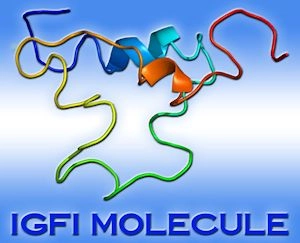Introduction
Hypopituitarism, a condition characterized by the diminished secretion of one or more of the pituitary hormones, has profound implications on various physiological functions. Among these, the influence on neurotransmitter levels, particularly dopamine, is of significant interest due to its critical role in mood regulation, cognitive function, and overall well-being. This article delves into a longitudinal study conducted on American males to assess the effects of hypopituitarism on dopamine levels and the resultant neurotransmitter imbalance.
Understanding Hypopituitarism
Hypopituitarism arises from damage to the pituitary gland, which may be caused by tumors, head injuries, radiation, or autoimmune conditions. The pituitary gland, often referred to as the "master gland," controls other endocrine glands and regulates numerous bodily functions. When its function is compromised, the production of hormones such as growth hormone, thyroid-stimulating hormone, and adrenocorticotropic hormone can be severely affected, leading to a cascade of systemic issues.
The Role of Dopamine
Dopamine, a neurotransmitter, plays a pivotal role in the brain's reward and pleasure centers. It is also essential for motor control, motivation, and emotional responses. Inadequate levels of dopamine can lead to conditions such as depression, fatigue, and even movement disorders like Parkinson's disease. Understanding the interplay between hypopituitarism and dopamine levels is crucial for developing effective treatment strategies.
Methodology of the Longitudinal Study
The study involved a cohort of American males aged 30 to 60 years diagnosed with hypopituitarism. Over a period of five years, participants underwent regular assessments to monitor their dopamine levels through blood and cerebrospinal fluid samples. Additionally, psychological evaluations were conducted to assess mood and cognitive function, providing a holistic view of the impact of hypopituitarism on neurotransmitter balance.
Findings: Dopamine Levels and Neurotransmitter Imbalance
The longitudinal study revealed a significant decrease in dopamine levels among participants with hypopituitarism compared to a control group of healthy males. This decline was associated with increased reports of fatigue, mood swings, and cognitive impairment. The data suggested a direct correlation between the severity of hypopituitarism and the extent of dopamine reduction, highlighting the critical role of pituitary hormones in maintaining neurotransmitter homeostasis.
Clinical Implications and Treatment Strategies
The findings underscore the need for targeted interventions to address dopamine deficiency in individuals with hypopituitarism. Hormone replacement therapy, which is commonly used to manage hypopituitarism, may need to be supplemented with medications that enhance dopamine production or activity. Additionally, lifestyle modifications, such as regular exercise and a balanced diet, can support overall neurotransmitter health.
Psychological and Social Considerations
Beyond the physiological aspects, the study also shed light on the psychological and social ramifications of living with hypopituitarism and its effects on dopamine levels. Participants reported challenges in maintaining social relationships and fulfilling occupational responsibilities, emphasizing the need for comprehensive support systems that address both the medical and psychosocial needs of affected individuals.
Conclusion
This longitudinal study provides valuable insights into the complex relationship between hypopituitarism and dopamine levels in American males. The observed neurotransmitter imbalance underscores the importance of integrated treatment approaches that consider both hormonal and neurotransmitter health. As research continues to evolve, the findings from this study will contribute to improved diagnostic and therapeutic strategies, ultimately enhancing the quality of life for those affected by hypopituitarism.
Future Directions
Future research should focus on larger, more diverse populations to validate these findings and explore potential genetic factors that may influence the susceptibility to dopamine deficiency in hypopituitarism. Additionally, investigating novel therapeutic agents that specifically target dopamine pathways could offer new hope for managing this challenging condition effectively.
Contact Us For A Fast And Professional Response

- 0001) Unraveling the Link Between Hypopituitarism and Cardiovascular Health in American Males [Last Updated On: March 3rd, 2025] [Originally Added On: March 3rd, 2025]
- 0002) Hypopituitarism's Impact on American Men: Symptoms, Challenges, and Coping Strategies [Last Updated On: March 10th, 2025] [Originally Added On: March 10th, 2025]
- 0003) Unraveling the Link Between Hypopituitarism and Metabolic Syndrome in American Males [Last Updated On: March 15th, 2025] [Originally Added On: March 15th, 2025]
- 0004) Hypopituitarism and Cardiovascular Health: Unveiling the Hidden Risks in American Males [Last Updated On: March 16th, 2025] [Originally Added On: March 16th, 2025]
- 0005) Unveiling the Connection: Hypopituitarism and Uterine Fibroids in American Males [Last Updated On: March 16th, 2025] [Originally Added On: March 16th, 2025]
- 0006) Understanding Hypopituitarism and Its Impact on Male Reproductive Health [Last Updated On: March 16th, 2025] [Originally Added On: March 16th, 2025]
- 0007) Unraveling the Hormonal Link: Hypopituitarism and Breast Cancer in American Males [Last Updated On: March 16th, 2025] [Originally Added On: March 16th, 2025]
- 0008) Hypopituitarism's Impact on Cognitive Function in American Males: Diagnosis and Management [Last Updated On: March 17th, 2025] [Originally Added On: March 17th, 2025]
- 0009) Hypopituitarism and Autoimmune Disorders: Implications for American Males [Last Updated On: March 18th, 2025] [Originally Added On: March 18th, 2025]
- 0010) Hypopituitarism in American Males: Impacts on Sleep and Hormonal Balance [Last Updated On: March 18th, 2025] [Originally Added On: March 18th, 2025]
- 0011) Hypopituitarism in American Males: Impact on Skin Health and Management Strategies [Last Updated On: March 18th, 2025] [Originally Added On: March 18th, 2025]
- 0012) Hypopituitarism and Obesity in American Males: Hormonal Impacts and Management Strategies [Last Updated On: March 18th, 2025] [Originally Added On: March 18th, 2025]
- 0013) Hypopituitarism in American Males: Pituitary Tumors and Surgical Management Insights [Last Updated On: March 18th, 2025] [Originally Added On: March 18th, 2025]
- 0014) Hypopituitarism and Anemia in American Males: The Erythropoietin Connection [Last Updated On: March 19th, 2025] [Originally Added On: March 19th, 2025]
- 0015) Multidisciplinary Approach to Managing Hypopituitarism in American Males [Last Updated On: March 19th, 2025] [Originally Added On: March 19th, 2025]
- 0016) Hypopituitarism in Aging American Males: Symptoms, Impact, and Management Strategies [Last Updated On: March 20th, 2025] [Originally Added On: March 20th, 2025]
- 0017) Hypopituitarism in American Males: Cancer Risks and Management Strategies [Last Updated On: March 21st, 2025] [Originally Added On: March 21st, 2025]
- 0018) Hypopituitarism and Male Pattern Baldness: Hormonal Links and Psychological Impacts [Last Updated On: March 21st, 2025] [Originally Added On: March 21st, 2025]
- 0019) Hypopituitarism's Impact on Joint Health in American Males: Hormones and Management [Last Updated On: March 21st, 2025] [Originally Added On: March 21st, 2025]
- 0020) Hypopituitarism and Hearing Loss: Implications for American Males [Last Updated On: March 22nd, 2025] [Originally Added On: March 22nd, 2025]
- 0021) Hypopituitarism in American Males: Impacts on Mental Health and Management Strategies [Last Updated On: March 22nd, 2025] [Originally Added On: March 22nd, 2025]
- 0022) Hypopituitarism's Impact on Asthma in American Males: Diagnosis and Management Strategies [Last Updated On: March 22nd, 2025] [Originally Added On: March 22nd, 2025]
- 0023) Hypopituitarism's Impact on Immune Function in American Males: Challenges and Management [Last Updated On: March 22nd, 2025] [Originally Added On: March 22nd, 2025]
- 0024) Hypopituitarism and Allergies: Exploring Links in American Males [Last Updated On: March 22nd, 2025] [Originally Added On: March 22nd, 2025]
- 0025) Hypopituitarism and Seizure Disorders: Neurological Links in American Males [Last Updated On: March 23rd, 2025] [Originally Added On: March 23rd, 2025]
- 0026) Hypopituitarism's Impact on Kidney Health: Monitoring and Management Strategies [Last Updated On: March 23rd, 2025] [Originally Added On: March 23rd, 2025]
- 0027) Hypopituitarism's Impact on Muscle Strength in American Males: Hormonal and Therapeutic Insights [Last Updated On: March 23rd, 2025] [Originally Added On: March 23rd, 2025]
- 0028) Hypopituitarism and CFS Overlap: Challenges and Treatment in American Men [Last Updated On: March 24th, 2025] [Originally Added On: March 24th, 2025]
- 0029) Hypopituitarism's Impact on Gastrointestinal Health in American Males: Symptoms and Management [Last Updated On: March 24th, 2025] [Originally Added On: March 24th, 2025]
- 0030) Hypopituitarism's Impact on Kidney Health: Essential Monitoring for American Males [Last Updated On: March 24th, 2025] [Originally Added On: March 24th, 2025]
- 0031) Hypopituitarism's Impact on Liver Health in American Males: Management and Treatment [Last Updated On: March 25th, 2025] [Originally Added On: March 25th, 2025]
- 0032) Hypopituitarism in American Males: Impact on Visual Health and Management Strategies [Last Updated On: March 25th, 2025] [Originally Added On: March 25th, 2025]
- 0033) Hypopituitarism and Migraines: Hormonal Links in American Males [Last Updated On: March 25th, 2025] [Originally Added On: March 25th, 2025]
- 0034) Hypopituitarism and Stroke Risk in American Males: Monitoring and Management Strategies [Last Updated On: March 25th, 2025] [Originally Added On: March 25th, 2025]
- 0035) Autoimmune Link Between Hypopituitarism and RA in American Males: Impacts and Management [Last Updated On: March 25th, 2025] [Originally Added On: March 25th, 2025]
- 0036) Hypopituitarism's Impact on Pancreatic Health in American Males: Risks and Management [Last Updated On: March 26th, 2025] [Originally Added On: March 26th, 2025]
- 0037) Hypopituitarism's Impact on Parkinson's Disease Progression in American Males [Last Updated On: March 26th, 2025] [Originally Added On: March 26th, 2025]
- 0038) Hypopituitarism and IBD Link in American Males: Gastrointestinal and Hormonal Insights [Last Updated On: March 26th, 2025] [Originally Added On: March 26th, 2025]
- 0039) Hypopituitarism and Gallbladder Disease: Exploring Links in American Men [Last Updated On: March 26th, 2025] [Originally Added On: March 26th, 2025]
- 0040) Hypopituitarism and Pituitary Cancer: Early Detection and Management in American Males [Last Updated On: March 26th, 2025] [Originally Added On: March 26th, 2025]
- 0041) Hypopituitarism and Fibromyalgia: Shared Symptoms and Management in American Males [Last Updated On: March 27th, 2025] [Originally Added On: March 27th, 2025]
- 0042) Exploring the Link Between Hypopituitarism and Alzheimer's in American Males [Last Updated On: March 27th, 2025] [Originally Added On: March 27th, 2025]
- 0043) Hypopituitarism and Dyslipidemia: Impacts and Management in American Males [Last Updated On: March 27th, 2025] [Originally Added On: March 27th, 2025]
- 0044) Hypopituitarism, Celiac Disease, and Autoimmune Links in American Males: A Comprehensive Overview [Last Updated On: March 27th, 2025] [Originally Added On: March 27th, 2025]
- 0045) Hypopituitarism's Impact on Glucose Metabolism in American Males with Diabetes Mellitus [Last Updated On: March 27th, 2025] [Originally Added On: March 27th, 2025]
- 0046) Exploring Hypopituitarism and MS Link in American Males: Diagnosis and Treatment Insights [Last Updated On: March 27th, 2025] [Originally Added On: March 27th, 2025]
- 0047) Hypopituitarism's Impact on Osteoarthritis in American Males: Hormonal and Joint Health [Last Updated On: March 27th, 2025] [Originally Added On: March 27th, 2025]
- 0048) Hypopituitarism's Impact on Uric Acid and Gout in American Males: A Comprehensive Analysis [Last Updated On: March 27th, 2025] [Originally Added On: March 27th, 2025]
- 0049) Hypopituitarism and Hypertension: Impact on Blood Pressure in American Males [Last Updated On: March 27th, 2025] [Originally Added On: March 27th, 2025]
- 0050) Hypopituitarism in American Males: Cardiovascular Risks and Management Strategies [Last Updated On: March 28th, 2025] [Originally Added On: March 28th, 2025]
- 0051) Hypopituitarism and Sjögren's Syndrome: Impact on Exocrine Glands in American Males [Last Updated On: March 28th, 2025] [Originally Added On: March 28th, 2025]
- 0052) Hypopituitarism and Adrenal Cancer: Endocrine Links and Management in American Males [Last Updated On: March 28th, 2025] [Originally Added On: March 28th, 2025]
- 0053) Hypopituitarism and Lupus Link in American Males: Clinical Insights and Management [Last Updated On: March 28th, 2025] [Originally Added On: March 28th, 2025]
- 0054) Hypopituitarism and Breast Cancer Link in American Males: Hormonal Insights [Last Updated On: March 28th, 2025] [Originally Added On: March 28th, 2025]
- 0055) Hypopituitarism and Ovarian Cancer Link in American Males: Emerging Research and Implications [Last Updated On: March 28th, 2025] [Originally Added On: March 28th, 2025]
- 0056) Hypopituitarism's Impact on Liver Cirrhosis in American Males: Hormonal and Hepatic Insights [Last Updated On: March 29th, 2025] [Originally Added On: March 29th, 2025]
- 0057) Hypopituitarism and Prostate Cancer: Understanding the Link and Managing Risks in American Males [Last Updated On: March 29th, 2025] [Originally Added On: March 29th, 2025]
- 0058) Hypopituitarism and Thyroid Cancer Link in American Males: Hormonal Imbalances Explored [Last Updated On: March 30th, 2025] [Originally Added On: March 30th, 2025]
- 0059) Hypopituitarism and Testicular Cancer: Impacts on Male Fertility and Management Strategies [Last Updated On: April 1st, 2025] [Originally Added On: April 1st, 2025]
- 0060) Hormonal Links Between Hypopituitarism and Endometriosis in American Males Explored [Last Updated On: April 4th, 2025] [Originally Added On: April 4th, 2025]
- 0061) Hypopituitarism's Gynecological Links: Uterine Fibroids and Male Health Implications [Last Updated On: April 4th, 2025] [Originally Added On: April 4th, 2025]
- 0062) Hypopituitarism and PCOS: Impacts, Diagnosis, and Multidisciplinary Management in Women's Health [Last Updated On: April 5th, 2025] [Originally Added On: April 5th, 2025]
- 0063) Hypopituitarism's Hormonal Impact and Cervical Cancer Risk in American Males [Last Updated On: April 6th, 2025] [Originally Added On: April 6th, 2025]
- 0064) Hypopituitarism and Erectile Dysfunction: Hormonal Links and Management Strategies [Last Updated On: April 7th, 2025] [Originally Added On: April 7th, 2025]
- 0065) Hypopituitarism: Impacts on Vaginal Health and Female Reproductive System [Last Updated On: April 8th, 2025] [Originally Added On: April 8th, 2025]
- 0066) Hypopituitarism's Impact on Penile Health and Fertility in American Males [Last Updated On: April 8th, 2025] [Originally Added On: April 8th, 2025]
- 0067) Hypopituitarism and Premature Ejaculation: Exploring Hormonal Links in American Males [Last Updated On: April 9th, 2025] [Originally Added On: April 9th, 2025]
- 0068) Hypopituitarism and Preeclampsia: Hormonal Monitoring Crucial in Pregnancy for American Males [Last Updated On: April 10th, 2025] [Originally Added On: April 10th, 2025]
- 0069) Understanding Hypopituitarism and Ectopic Pregnancy: A Guide for Male Partners [Last Updated On: April 10th, 2025] [Originally Added On: April 10th, 2025]
- 0070) Hypopituitarism's Impact on Male Fertility and Miscarriage Risk: Hormonal Insights [Last Updated On: April 10th, 2025] [Originally Added On: April 10th, 2025]
- 0071) Hypopituitarism's Impact on Male Fertility: Diagnosis, Treatment, and Emotional Support [Last Updated On: April 11th, 2025] [Originally Added On: April 11th, 2025]
- 0072) Hypopituitarism's Influence on Gestational Diabetes in American Males: A Metabolic Link [Last Updated On: April 12th, 2025] [Originally Added On: April 12th, 2025]
- 0073) Hypopituitarism's Impact on Lactation in American Males: Challenges and Management Strategies [Last Updated On: April 12th, 2025] [Originally Added On: April 12th, 2025]
- 0074) Hypopituitarism and Postpartum Depression in American Males: Symptoms, Diagnosis, and Management [Last Updated On: April 14th, 2025] [Originally Added On: April 14th, 2025]
- 0075) Hypopituitarism and Alopecia: Causes, Diagnosis, and Management in American Males [Last Updated On: April 15th, 2025] [Originally Added On: April 15th, 2025]
- 0076) Hypopituitarism in American Males: Impact on Dental Health and Management Strategies [Last Updated On: April 16th, 2025] [Originally Added On: April 16th, 2025]
- 0077) Hypopituitarism in American Males: Impacts on Acne and Skin Health Management [Last Updated On: April 16th, 2025] [Originally Added On: April 16th, 2025]
- 0078) Hypopituitarism and Vision Loss in American Males: Ophthalmological Insights and Management [Last Updated On: April 17th, 2025] [Originally Added On: April 17th, 2025]
- 0079) Hypopituitarism and Andropause: Impacts and Management in Aging American Men [Last Updated On: April 17th, 2025] [Originally Added On: April 17th, 2025]
- 0080) Hypopituitarism and Vestibular Disorders: Impacts and Management in American Males [Last Updated On: April 17th, 2025] [Originally Added On: April 17th, 2025]
















